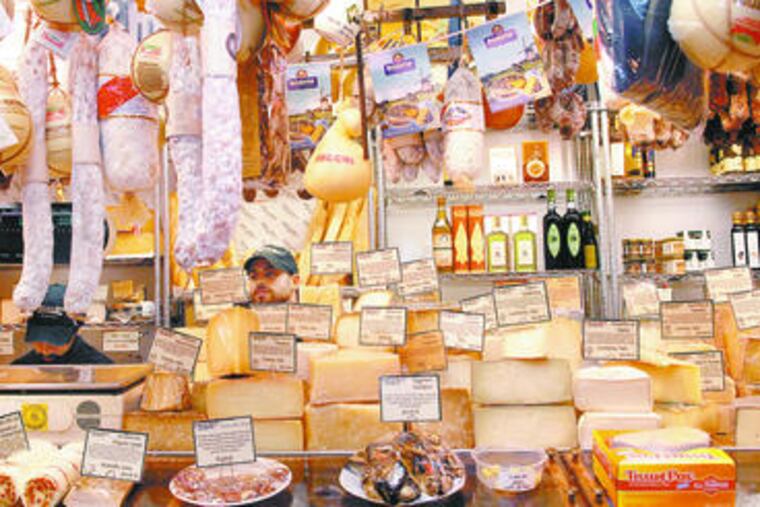Tariffs mean wine and cheese could cost more this holiday season
Tariffs set to take effect on European products like wine and cheese will start hitting customers in November or December, local businesses said.

This holiday season, shoppers might find that bottles of Bordeaux and wedges of Parmesan are pricier than they expected.
Local cheese and wine purveyors said they may have to start charging more to account for the Trump administration’s recently announced tariffs on some European goods. Set to go into effect Oct. 18, the 25 percent tariffs on such imports as wine, cheese, and whiskey won’t change anything overnight, businesses said. But by the end of the year, they will start cutting into profits for everyone from producers to importers to the shops themselves.
“It probably won’t affect your Thanksgiving, but it’ll definitely affect your Christmas,” said Leigh Ann Soriano, head of cheese purchasing for Severino Pasta, a New Jersey-based business that produces pasta for Whole Foods and operates a cheese shop in Westmont.
After the tariffs are implemented, she said, the shop may have to start charging more, and hope customers will understand.
“The timing is bad,” said Joseph Severino, operations director for the company. “I don’t want to have to raise prices. But if the importers are getting a cost increase, it puts us in a bad situation."
The Trump administration’s tariffs, which were approved by the World Trade Organization in a case involving illegal EU subsidies to the plane maker Airbus, target large aircraft but also a host of European products like olives, whiskey, wine, cheese, and yogurt.
American alcohol importers, distributors and retail organizations have voiced opposition, saying the tariffs will affect nearly $3.4 billion in imports and cost the United States 13,000 jobs, including truckers and bartenders.
David Moore of Moore Brothers Wine Co., which for more than 20 years has been selling wine imported from countries such as Italy and France, said the effects of the tariffs will depend on how negotiations go between importers and winemakers in the months ahead.
With stores in Pennsauken, Wilmington, and Manhattan, Moore Brothers works with an importer that transports the bottles from foreign winemakers, some of whom are already operating on minuscule margins. The tariffs would likely further reduce the income for those winemakers.
“We don’t want anyone beating up our producers for price reductions,” he said. "We certainly hope that this can be avoided. But if they go into effect, eventually, we’ll have to raise prices.”
Moore Brothers, which orders thousands of cases at a time, is in a better position than some other companies. The hikes could be devastating for small businesses, Moore said, who might have to delay pay raises or even lay off workers. And the tariffs were announced with only a few weeks’ notice, leaving not much time for stores to stock up.
Emilio Mignucci, vice president of Di Bruno Bros., which sells products like cheese and olives in five locations, said the company has already ordered enough of many of its products to last through the end of the year.
“Those items that [have not yet been ordered], we are working with our producers to try and split the difference so that we can maintain pricing through the rest of the year and take a smaller gross," he said. “There will also be items that we are just going to take a smaller gross on, and there may be a couple of items that we will need to increase pricing.” They will decide if they need to raise prices in 2020, he said.
Some businesses said the tariffs could offer opportunities for customers to try different domestic products, like wine from California or cheese from Vermont. Many shops in Philadelphia sell high-quality cheese made by farms in Pennsylvania, like Birchrun Hills, Yellow Springs, and Calkins Creamery.
But Jack Morgan, owner of the Downtown Cheese shop in Reading Terminal Market, said American-made cheese also has to be priced high enough for producers to turn a profit.
“I don’t see my domestic sales going up that much that it would make up for the sales I’ll start to lose,” he said. “You slap a 25 percent hike on something, and people are going to notice.”
He said the only way to combat the price hikes is by offering competitive prices on products sold by the pound, like hard cheeses.
“I’ll have to adapt," he said. “I’m not going to let this put me out of business. But the bottom line is, people will start buying less."